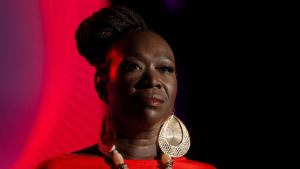California Supreme Court Rulings Reshape ‘Three Strikes’ Sentencing and Gang Enhancements
The California Supreme Court issued two pivotal rulings last week that could dramatically reshape how courts apply gang enhancements and lengthy “three strikes” sentences, marking one of the most consequential judicial shifts in recent years. The decisions have sparked both hope for incarcerated individuals seeking relief and concern from prosecutors who argue the rulings will undermine public safety.
A Turning Point for California’s Gang Laws
Both rulings stem from a 2021 law known as the STEP Forward Act, authored by then-Assembly member Sydney Kamlager-Dove. The legislation raised the bar for proving gang involvement, requiring prosecutors to demonstrate more than reputational benefit to qualify crimes as gang-related.
The law significantly narrowed what prosecutors could argue constituted “criminal street gang activity” and restricted the type of evidence admissible in court. It also allowed defendants to request separate proceedings for gang allegations to ensure fairer trials.
Until now, the law had applied only to new prosecutions. By extending its provisions retroactively, the California Supreme Court has opened the door for thousands of inmates serving gang-enhanced or three-strikes sentences to challenge their convictions.
First Case: Sentences Under Review
In the first ruling, the court determined that two defendants’ sentences must be reconsidered under the new standards. The majority opinion held that the retroactive application of Assembly Bill 333 required trial courts to revisit older cases to assess whether the gang enhancements still applied.
Chief Justice Patricia Guerrero issued a sharp dissent, warning that the court had gone too far. She argued that the ruling would make it “virtually impossible” for prosecutors to sustain gang allegations in retrials.
Second Case: Death Sentence Overturned
The second case involved Jason Aguirre, an Orange County man convicted in 2009 of murder and attempted murder. Prosecutors had argued Aguirre acted to bolster the reputation of the Dragon Family Junior gang.
While the court upheld his murder convictions, it overturned his death sentence on the grounds that jurors were not instructed under the revised legal definition of gang participation. Because the 2021 law requires proof of tangible benefits beyond reputation, the court ruled the gang enhancements were invalid. The case has been sent back for further proceedings.
History of Gang Enhancements in California
Gang enhancements have long been a defining feature of California’s criminal justice system. Originally established under the 1988 STEP Act during the height of violent crime, the laws gave prosecutors tools to pursue harsher penalties for crimes committed “to benefit a criminal street gang.”
In 2000, Proposition 21 expanded these provisions, toughening penalties and broadening the scope of what qualified as gang-related activity.
Over time, prosecutors applied gang enhancements broadly, often in cases involving nonviolent felonies. Critics argued this practice disproportionately targeted minority communities, especially young men of color, and encouraged convictions based on associations, tattoos, or attire rather than direct evidence.
Reform and Controversy
Supporters of the STEP Forward Act framed it as a necessary reform to prevent decades of overreach. They argued too many individuals were being punished for their environment rather than their actions. Opponents, however, see the changes as a step backward in addressing violent crime.
Legal analysts predict thousands of inmates will now file petitions for resentencing, creating a backlog for California courts. Prosecutors warn that retrying old cases will be fraught with difficulties, including unavailable witnesses and faded memories.
Political Implications
The timing of the rulings also intersects with Governor Gavin Newsom’s evolving political strategy. As Newsom attempts to portray himself as tougher on crime in the face of rising public concern, these decisions complicate the narrative.
While Newsom has called for more National Guard deployments to combat violent crime, the courts are simultaneously scaling back the tools available to prosecutors. This tension underscores the broader clash between calls for reform and demands for public safety.
Looking Ahead
The California Supreme Court’s rulings will reverberate across the justice system. Inmates serving lengthy sentences under old gang enhancement laws may now see opportunities for relief, while prosecutors brace for a wave of challenges.
Whether these changes ultimately promote fairness or undermine safety remains to be seen. What is clear, however, is that the rulings mark a turning point in California’s decades-long struggle to balance justice, equity, and security.

James Jenkins is a celebrated Pulitzer Prize-winning author whose work has reshaped the way readers think about social justice and human rights in America. Raised in Atlanta, Georgia, James grew up in a community that instilled in him both resilience and a strong sense of responsibility toward others. After studying political science and creative writing at Howard University, he worked as a journalist covering civil rights issues before dedicating himself fully to fiction. His novels are known for their sharp, empathetic portraits of marginalized communities and for weaving personal stories with broader political realities. Jenkins’s breakout novel, Shadows of Freedom, won national acclaim for its unflinching look at systemic inequality, while his more recent works explore themes of identity, resilience, and the fight for dignity in the face of oppression. Beyond his novels, James is an active public speaker, lecturing at universities and participating in nonprofit initiatives that support literacy and community empowerment. He believes that storytelling is a way to preserve history and inspire change. When not writing, James enjoys jazz music, mentoring young writers, and traveling with his family to explore cultures and stories around the world.









